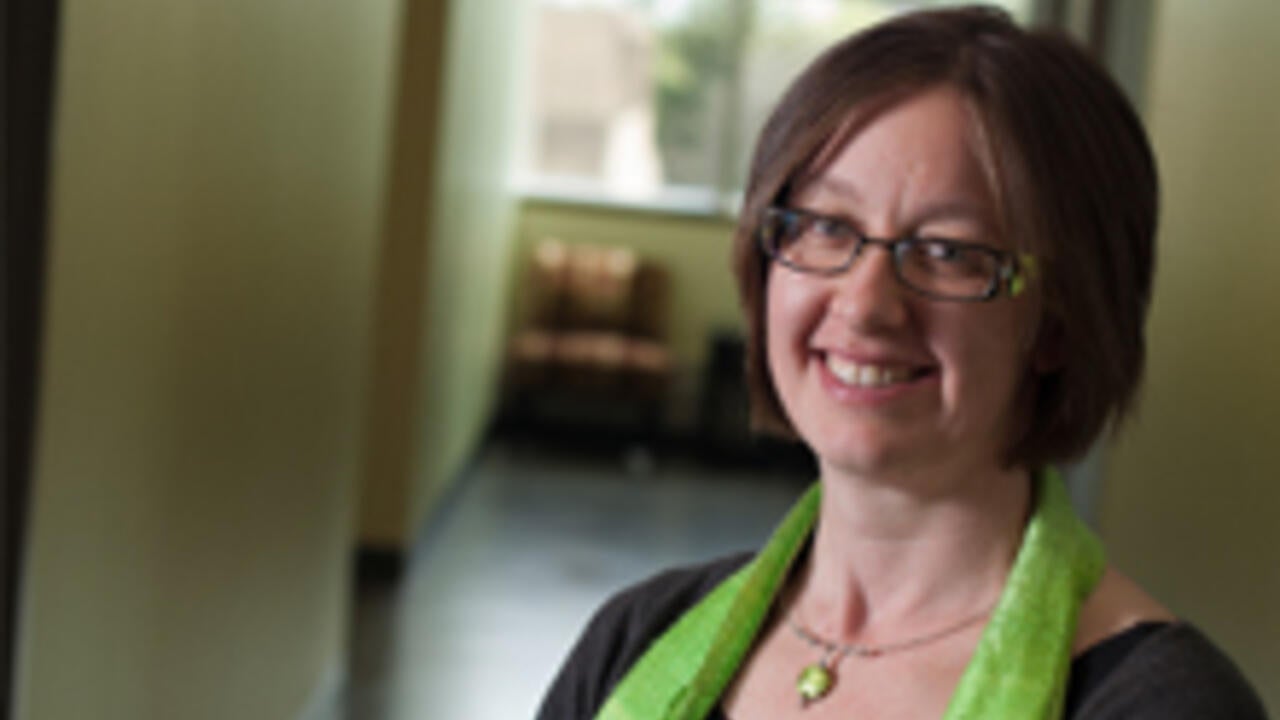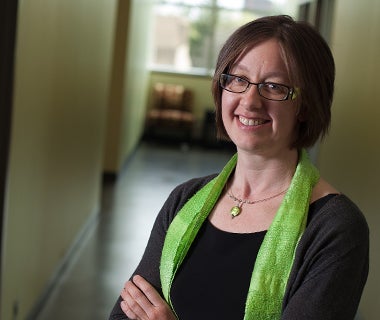
Is buying green too much work for you?
Waterloo researcher helps design app after her study reveals salespeople don’t know much about the energy efficient appliances they’re selling.

Waterloo researcher helps design app after her study reveals salespeople don’t know much about the energy efficient appliances they’re selling.
By Beth Gallagher Communications and Public AffairsMany salespeople can’t find energy efficient televisions and they don’t have information when buyers probe for eco-options, a University of Waterloo study has found.
 Jennifer Lynes, program director of Environment and Business at Waterloo's School of Environment, Enterprise and Development.
Jennifer Lynes, program director of Environment and Business at Waterloo's School of Environment, Enterprise and Development.
Their knowledge about energy efficient washing machines is better – 60 per cent of salespeople can find green information about washers. But that still leaves a lot of transactions where buyers want to do good but don’t have the support they need to make a green decision.
“My hope is to make it easy for consumers to buy green,” says Jennifer Lynes, the study’s author and program director of Environment and Business at Waterloo’s School of Environment, Enterprise and Development. “I want it to be the norm, rather than an alternative. I want to put it on the radar at the retail level so sales associates are talking about it upfront as a priority and not as an afterthought.”
Marketing strategies
The reality is marketing strategies can influence consumers, says Lynes and salespeople who understand energy and water efficiency can make a compelling case to buyers who want to reduce their carbon footprint.
“For large purchases like televisions and washing machines, the sales associate interaction is really important,” says Lynes. “When you buy an energy efficient light bulb it’s different. You don’t need to rely on a sales associate as much for small purchases.”
Harried consumers have good intentions but little time to do the research required to make an informed decision. “It’s too hard to find information right now and you want the information you’re getting from the sales associate to be accurate,” says Lynes. “Sometimes it’s hard to know what the energy labels mean.”
An app for appliances
Lynes is part of a research team currently developing an app that will help sellers immediately find and compare appliances for customers in-store that are energy efficient and water efficient. Partnered with My Sustainable Canada, she is working on phase two of the project with funding from the Ontario Centres of Excellence which helps researchers commercialize ideas.
Along with help from Communitech and the App Factory, the team has a developed a prototype that instantly shows how much energy an appliance uses monthly or annually and even shows the equivalent trees needed or equivalent litres of gasoline that would be used to run the appliance.
The app can compare different appliances at a glance showing the lifetime and annual average energy costs and can contrast your new appliance to the cost of running your current appliance.
Lynes is hoping once the app is adopted at the retail level, her group will adapt it for consumers and later they may look at developing it for other products like cars.

Read more
Here are the people and events behind some of this year’s most compelling Waterloo stories

Read more
Discover how Waterloo alumni are driving Canada’s economy with five tech companies making a local and global impact

Read more
Meet the five exceptional graduate students taking the convocation stage as Class of 2024 valedictorians
The University of Waterloo acknowledges that much of our work takes place on the traditional territory of the Neutral, Anishinaabeg, and Haudenosaunee peoples. Our main campus is situated on the Haldimand Tract, the land granted to the Six Nations that includes six miles on each side of the Grand River. Our active work toward reconciliation takes place across our campuses through research, learning, teaching, and community building, and is co-ordinated within the Office of Indigenous Relations.